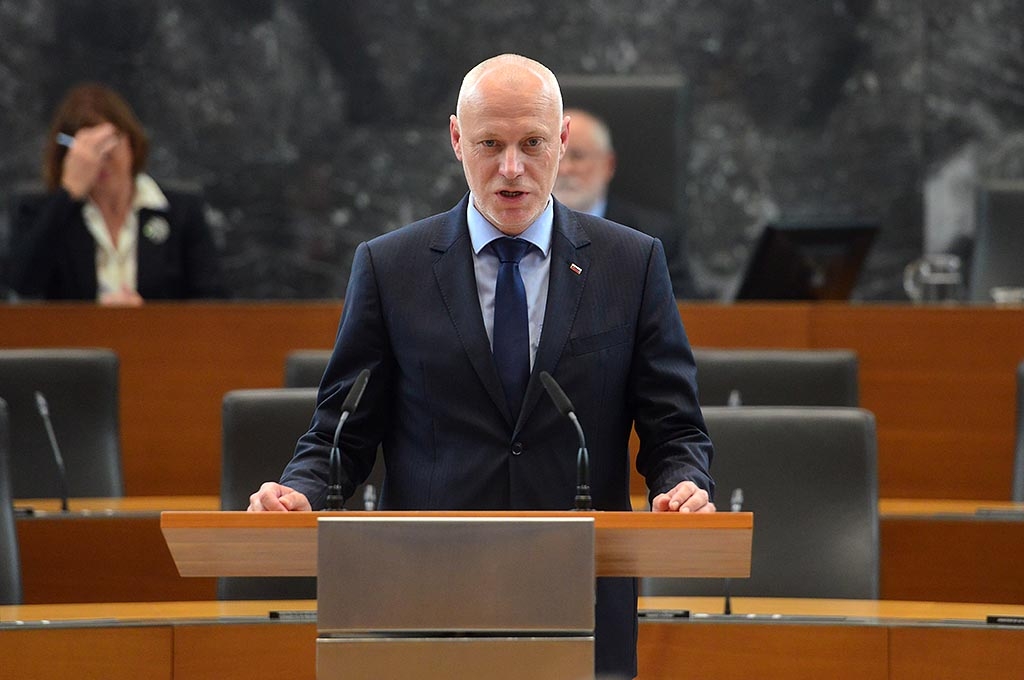By: Domen Mezeg / Nova24tv
“Um, Milan Brglez, in Austria the government remains under the leadership of the sister party of President Sebastian Kurz, and in the Czech Republic the coalition of our sister parties won, while your red communist brothers and even their socialist cousins dropped out of parliament,” replied Prime Minister Janez Janša to MEP Milan Brglez, who apparently believes that the departure of Kurz and Babiš opened an opportunity for the left. But Brglez is wrong, as the left is losing people’s support across Europe, and his SD and the rest of the radical left will face a bad period with regular elections. As a result, there are more and more attempts to forcibly overthrow the government.
With these words, Prime Minister Janez Janša responded to the deception of post-communist and SD party member Milan Brglez, who tried to launch recent political events in Austria and the Czech Republic like grist on the mill of the “archery opposition”. The latter wrote: “Friends of the Slovenian Prime Minister are leaving their positions (Sebastian Kurz, Andrej Babiš). It is time for the Government of the Republic of Slovenia to finally go and we go to the polls.” The statement is the result of fears by leftists, who fear that the current Prime Minister and the ruling SDS, together with their partners, would repeat their political success and form a government in the future, leaving the “archers” without their catch.
Recall: According to media reports, the current Austrian Chancellor Kurz resigned from the ranks of the Austrian People’s Party (due to a scandal), and will be replaced by his party colleague, Alexander Schallenberg, who has so far held the post of Foreign Minister. Moreover, there has also been a minor turnaround within the right wing camp in the Czech Republic. The party of the current Prime Minister Andrej Babiš, named Ano, was defeated by the right wing conservative alliance Spolu (Together) by a small point in the elections. At the same time, the public was revived by the news that Czech voters, for the first time since 1948, had expelled the Communists from parliament, which hurt Brglez immensely.
It is looking bad for the political left: Friday’s political bike rallies are slowly dwindling (they are like an inedible pickled parish), despite the exclusive support of its first uncle Milan Kučan, promotion of the informal host Tea Jarc on POP TV, and Jaša Jenull being dragged into parliament. In addition, Zoran Stevanović has already taken the baton from Jenull and Jarc in the pre-election competition, but he recently found himself in conflict with the law and was detained by the police.
SD must urgently run for government in the next elections due to the financial rehabilitation of the party and the preservation of nine, ten percent
At the same time, it is hopeless to expect Stevanović, as a former member of the Zmago Jelinčič Plemeniti’ SNS party, to instil confidence in left wing voters. Various harassment in front of parliament and likes on Facebook do not count. Time is running out, and the left opposition does not have a candidate for a “new face” who would create another thatched party and convince naïve transitional voters with his charisma.
Brglez’s efforts could also be highlighted with a recent statement by socio-political commentator and former SD member Darko Mršić: “I think that SD thinks completely pragmatically. To them, any future government (center-left or left wing government), where they will be part of the government, not necessarily the leading party, is somehow a lifeline, at least from the point of view of the party’s financial stabilisation. I doubt that the party will withstand such a structure, such diversification, such a network and funding of this team of people, which somehow keeps the party relatively stable at these nine, ten percent in the opposition for another four, three or two years.
